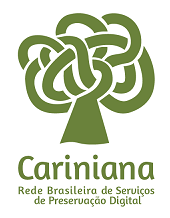<i>Three Guineas</i> and the feminist literary criticism: revision and rereading
DOI:
https://doi.org/10.5433/el.2012v9.e25694Keywords:
Virginia Woolf, Three Guineas, Crítica literária feminista, RevisionAbstract
This paper aims to analyze Virginia Woolf’s essay Three Guineas from a feminist literary criticism perspective in order to understand how the meaning of Virginia Woolf’s text has been reconstructed in the last decades. It will be investigated how the current feminist literary criticism has revisited and reread her works and as Woolf herself has been reinvented by such criticism. In order to do so, the theoretical framework will concentrate on authors such as Naomi Black, Barbara Hill Rigney, Krista Ratcliffe, Teresa Winterhalter among others.Downloads
References
BLACK. Naomi. Virginia Woolf as a Feminist. London: Cornell U P, 2004.
BOWLBLY, R. Walking, Women and Writing: Virginia Woolf as flâneuse. In: ARMSTRONG, Isobel (ed.). New Feminist Discourses: critical essays on theories and texts. London: Routledge, 1992.
DESALVO, L. Virginia Woolf: The impact of childhood sexual abuse on her life and work. Boston: Beacon, 1989.
GUBAR, S.; GILBERT, S. The madwoman in the attic: the woman writer in the nineteenth-century literary imagination. New Haven: Yale University Press, 2000.
GUBAR, S.; GILBERT, S. No man's land: the place of the woman writer in the twentieth century. New Haven: Yale University Press, 1988 v.1: The War of the Words
GUBAR, S.; GILBERT, S. no man’s land: the place of the woman writer in the twentieth century. New Haven: Yale University Press, 1989. v. 2: Sexchanges.
HEILBRUN, Carolyn Gold. Toward a recognition of androgyny. New York: W.W. Norton&Company, 1993.
HUSSEY, Mark. Virginia Woolf: A to Z. New York: Oxford University Press, 1996.
LEE, Hermione. The Novels of the 1930’s and the Impact of History. In: LEE, Hermione. The Cambridge Companion to Virginia Woolf. Cambridge: Cambridge University Press, 2010.
LONDON, B. Guerrilla in Petticoats or Sans-Culotte? Virginia woolf and the future of feminist criticism. Diacritics, v. 21, n. 2/3. 1991. Disponível em: http://www.jstor.org. Acesso em 18 Mar 2011
MARCUS, Jane. Art and anger. Ohio: Ohio University Press, 1988.
MARDER, Hebert. Virginia Woolf's Conversion: three guineas, Pointz Hall and between the acts. Journal of Modern Literature, v. 14, n. 4, p. 465-480, 1988. Disponível em: http://www.jstor.org. Acesso em: 19 mar. 2011
MOERS, E. Literary Women: The Great Writers. New York: Doubleday, 1976.
MOI, T. Teoria Literaria Feminista. Madrid: Catedra, 2006.
RATCLIFFE, Krista. A Rhetoric of Textual Feminism: (Re)Reading the Emotional in Virginia Woolf's Three Guineas. Rhetoric Review, v. 11, n. 2, p. 400-417, 1993, Disponível em: http://www.jstor.org. Acesso em: 19 mar. 2011.
RICH, Adrienne. When we dead awaken: writing as re-vision. College English, v. 34, n. 1, p. 18-30, 1972. Disponível em: http://www.jstor.org. Acesso em: 04 fev. 2012
RIGNEY, Barbara Hill. Madness and sexual politics in the feminist novel: studies in brontë, woolf, lessing and atwood. Madison: The Univerity of Wisconsin P, 1978.
SILVER, Brenda. Virginia Woolf’s Reading Books. New Jersey: Princeton U P, 1983.
SHOWALTER, E. A Literature of their own: british women novelists from Brontë to lessing. New Jersey: Princeton University, 1977.
WINTERHALTER, Teresa. What Else Can I Do but Write? Discursive disruption and the ethics of style in VirginiaWoolf's Three Guineas. Hypatia, v. 18, n. 4, p.236-257, 2003. Disponível em: http://www.jstor.org. Acesso em: 20 mar. 2011
WOOLF, Virginia. A room of one’s own and Three Guineas. Introd. Michele Barrett. London: Penguin Books, 1993.
ZWERDLING, Alex. Anger and Conciliation in Woolf's Feminism. Representations, n. 3, 1983. Disponível em: http://www.jstor.org. Acesso em: 12 Abril 2011.
Downloads
Published
How to Cite
Issue
Section
License
A revista se reserva os direitos autorais sobre as contribuições publicadas, sem retribuição material para o autor, podendo disponibilizá-las on-line no modo Open Access, mediante sistema próprio ou de outros bancos de dados; também poderá efetuar, nos originais, alterações de ordem normativa, ortográfica e gramatical, com o intuito de manter o padrão culto da língua, contando com a anuência final dos autores. As opiniões emitidas pelos autores são de sua exclusiva responsabilidade.











